#parallels in fairy tales
Text



the cry of the wild goose, frankie laine // snufkin leaves moominvalley, the moomins // brandy (you're a fine girl), the looking glass // selkie, wikipedia page // song of the sea, cartoon saloon // chilling of the evening, arlo guthrie // swan princess crying, john bauer // wild geese, mary oliver // dinosaur, richard siken // selkie statue, mikladalur // brandy (you're a fine girl), the looking glass // the swan maiden, swedish fairytales // serethereal, tumblr post // moominvalley in november, tove jansson
#web weaving#selkies#swan maiden#moomins#snufkin#moominvalley#quotes#parallels#compilation#mary oliver#richard siken#song of the sea#this concept has been living in my head since i started the moomins#me clawing at a wall strewn with papers#ive connected the dots ive conencted them#something something you cannot capture something that does not wish to be caged#love must be freely given and not taken#etc etc etc i am going crazy#fairy tale
289 notes
·
View notes
Photo
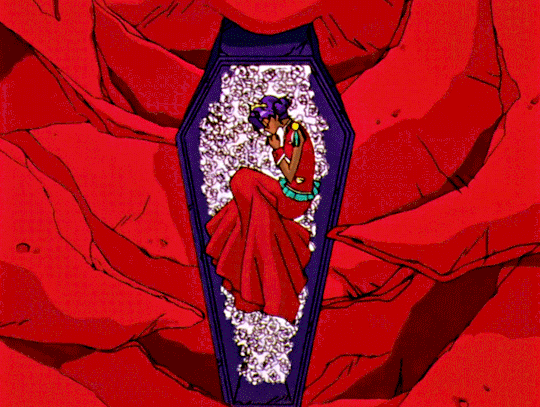
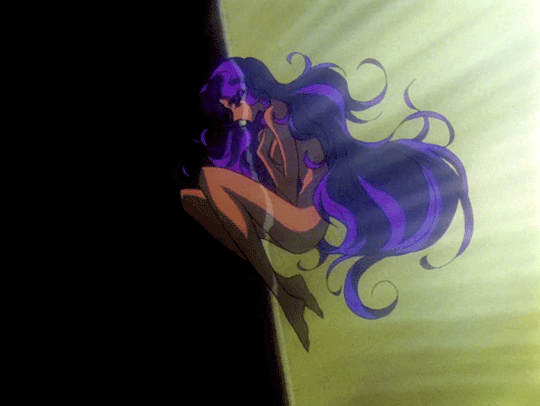
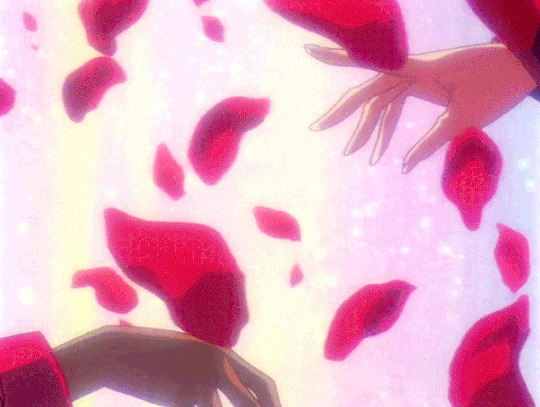

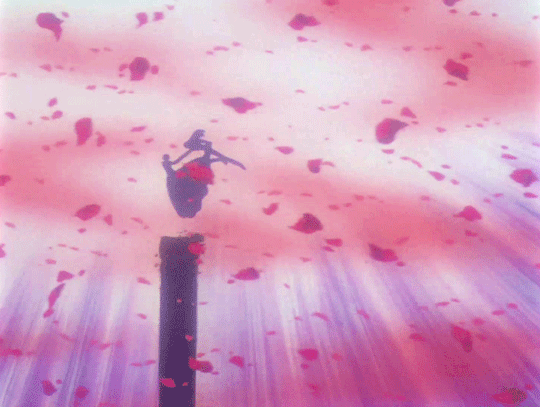

Revolutionary Girl Utena - 少女革命ウテナ (1997)
Episode 09 / Episode 39
#anthy being awake in her coffin and choosing to take utena's hand in the finale................... <3#revolutionary girl utena#utena tenjou#anthy himemiya#utenanthy#utena#rgu#parallel#utena hands#anime#fyanimegifs#anisource#dailyanime#gif#gifset#no roses. no petals. nthn fancy or ott... not a fairy tale any more.. its just Them#yuri anime#shoujoaisource#hands
1K notes
·
View notes
Text
harder than you think
i. When the Narnians stole Edmund away from beneath the Witch's blade, they told him he was safe. This wasn't a lie, but it wasn't the whole truth either.
ii. They brought him to the Stone Table. It was night. Edmund doubted very much that he would find safety there, for he still recoiled at the name of Aslan. He slept fitfully and woke the next morning before the sun was up.
iii. A sliver of gold just beyond the tent flap captured his attention, there in the dark. Unaccountably, Edmund felt the urge to rise and go towards it.
iv. And there was Aslan, who was supposed to be fearsome, supposed to be dangerous, supposed to be powerful, and he was he was he was. Dimly, Edmund felt himself hitting the ground.
v. But then Aslan said, “Come, Son of Adam. Let us walk a while, and reason together.”
vi. And as they walked together, in the cool dewy grass of early morning, the Lion told Edmund everything that he had ever done.
vii. They were standing in front of the Table when the conversation turned. Aslan spoke a riddle of a house blasted into rubble which he would piece back together overnight. He spoke of flesh being pierced, blood being shed, and of rejected stones being used for new foundations. He spoke about water welling up forever, washing you clean of everything you ever did wrong, all the blood that you ever thought of shedding, everything you ever tried to steal, and a river that carries you home when you can't walk anymore and spits you out brand new when it reaches the sea.
viii. Edmund's head swam. Silently, he yearned for the wisdom to understand what he was being told; or, failing that, at least to remember it for as long as it took him to puzzle it out.
ix. And then, the Witch. Then, the battle. The thrones. A year passed, and winter came. In its time, it melted back to glorious spring.
x. “Edmund,” said Lucy one day. “There's something we need to tell you.” She and Susan were cloaked in springtime gossamer, like fairy queens in poems he only half remembered. They sat on the window seat in his study, holding hands white-knuckled: his two beloved sisters.
xi. “It's about Aslan,” Susan said. “And the White Witch, and how he made her renounce her claim on your blood. The night before Beruna, he went back to the Stone Table.”
xii. “He let her kill him,” Lucy cut in. “Instead of you. And then, because he hadn't done anything wrong, the Emperor's Deeper Magic brought him back to life.”
xiii. “We've been arguing all year about how much to tell you,” said Susan wryly. Then, a little gentler, “We don't want to hurt you, but we feel you ought to be told what he did for you.”
xiv. And Edmund, who had never forgotten what Aslan told him on that cool, dewy morning before the sun came up, shut his eyes and whispered, “I know.”
xv. I know, he said. I know that he died. I know that he did it for me. I know he lived again because I saw him the next day, and the next, and the next. I think I know what it means - or at least, I know the shape of it.
xvi. “Oh,” said Lucy. “We should have realized that he would have told you himself.”
xvii. “Yes. But please, tell me the story all the same.”
#finally returning to this little character study series thing#I really like this one#bc Edmund pretty clearly knows about Aslan's sacrifice in later books but as of the end of lww the girls are still debating#what if anything he should be told#and like. imo that was what the early morning talk was#the gospel presented in that Jesus-y way where he's like 'this is all gonna make sense to you in a little bit once it gets fulfilled'#in addition to some of the more specific stuff about Edmund's specific sin probably#in my head the closest parallel for that conversation would end up being the magician's book with lucy#anyway#this whole series is being posted together on ao3 just so you know#narnia#the traitor who mended#reading fairy tales again#pontifications and creations#leah stories
194 notes
·
View notes
Text
I think it’s interesting that you get to see all three chosen’s living spaces and like for all their bravado they live empty, pathetic lives and the game goes out of it’s way to instill the idea that they’re all desperate to please their gods in ways that are dark mirrors, or at least narratively parallel to our companions. We are a hair away from being our dark other, brother
Except for karlach.
#bg3#bg3 spoilers#the dead three#spoilers#I think the only chosen who deviates is Kethric and even then you could argue that he could be a foil to Halsin or minthara#Orin and durge is obvious but Orin and shadowheart and lae’zel also have parallels#wyll and gortash are 1:1 on leaning so hard on fairy tale cliches and subversions that it almost makes your head spin#astarion is self aware that his entire life is being controlled by a god like figure and the chosen are simply Oblivious#Gale and gortash meet your desperation for love dressed up as a god complex#karlach and her loyalty that inevitably bites her in the ass ala Orin#Jaheira and minsc are just here#Orin the red#Enver gortash#Kethric thorm#karlach has … other issues I’m surprised no one has addressed yet#wonderful personality! completely shafted by plunging into a revenge plotline with very little gratification or leeway in choice
290 notes
·
View notes
Text
Bucchigiri Utena Parallel-Wannabe Heroes and the Illusion of Fairy Tales
Apart from the NNL segments, I've also had some thoughts on the Bucchigiri storyline and it's parallels to the themes of Revolutionary Girl Utena. And this time my focus as been on Matakara, who has often been hailed as being the true protagonist and hero of the story because of his honorable, kind-hearted and proactive qualities. Much like Utena herself.


And like Utena, the two share a somber backstory where they held on to fairy tale beliefs to help them overcome their hardships and grow into the heroic figures they wish to be. But what they don't know is that they naively followed these tales without realizing the misinterpretations of those beliefs that have been passed down for generations and would soon become victims of the fairy tale figures that once inspired them.
But before I can delve into that story, we need to talk about this story.
Note: This post will contain MAJOR SPOILERS from the Revolutionary Girl Utena anime. If you still haven't watched it and want to be unspoiled, then please refrain from reading this until you've seen it. If that doesn't bother you, then go on ahead. Also, I would strongly recommend speaking with a friend or a reliable user about the dark and trigger-worthy content featured in Utena before watching. It's a great show but it does get DARK.
Also, there's another user who's planning on making an analysis post comparing Matakara and Anthy Himemiya so keep an eye out for that if you're interested in more Bucchigiri-Utena parallels.
Part 1: Origins of an Orphan
To start, Matakara's backstory and his idolization of Arajin has multiple similarities to Utena's backstory. For the purpose of this section, I'll be using the version that was shown to us in Episode 1 and not the true version.
"Once upon a time, many years ago, there was a little princess and she was very sad. For her mother and father have died."
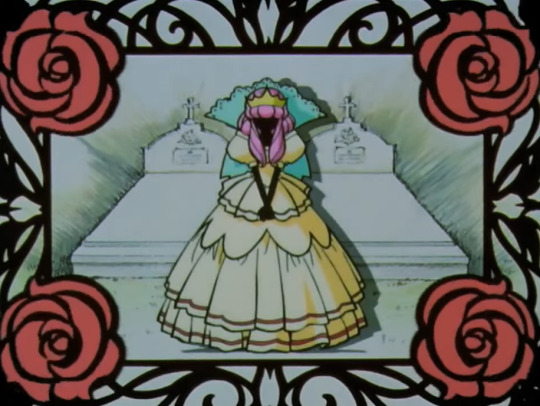
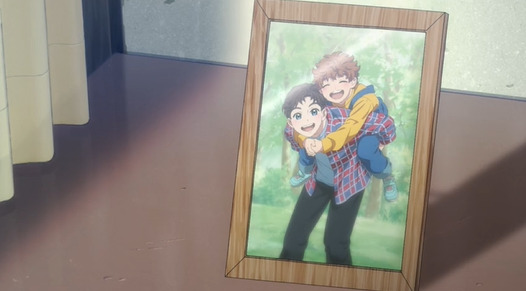
The first piece of info that Utena gives us is that she was an orphan and was in despair because of her parents' deaths. Though Matakara's own parents haven't been brought up nor has it been explained what became of them, it's clear that he lost them at an early age. And while he did have his older brother and his presumed relatives to watch over him, this did very little in helping Matakara overcome his grief or escape the shadows that haunted him since he was little.
"Before the princess appeared a traveling prince riding upon a white horse. He had a regal bearing and a kind smile. The prince wrapped the princess in a rose-scented embrace and gently wiped the tears from her eyes."

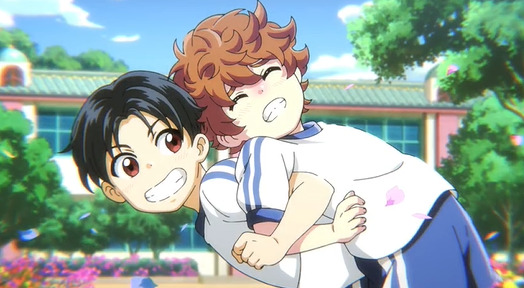
While lacking the regal bearing and white horse, Arajin was the traveling prince who came into Matakara's life and inspired hope and light within him. As shown in their flashbacks, he was always a friendly and cheerful boy who radiated confidence and spirit. A true hero that Matakara could look up to and help him overcome his sorrow.
"Little one, he said, growing up alone in such deep sorrow, never lose that strength and nobility. Even when you are a young lady. I give you this to remember this day, we will meet again. This ring will lead you to me one day."
The crux of Matakara and Arajin's friendship was their desire to train and grow into becoming true Honki people. Warriors with strong hearts and did not flee from battle. Arajin genuinely saw that Matakara had that potential and encouraged him to train alongside him.
And what's more noteworthy is that the two are given a token to immortalize the moment. Utena is given a rose ring to remember the prince and her own nobility while Matakara is given a friendship stone to remember their bond as future Honki People. Even as their fated princes leave, the two heroes carry those precious tokens well into their adolescence years, never forgetting their mission of becoming the people they want to be.


It could also be argued that Mitsukuni, his older brother, could qualify as the prince in this scenario as he inspired him to stay strong in the face of adversity. Such as in Episode 8 where he explained the creed of the Honki and how he inspired his little brother to be brave like them. He even brings up their creed to Matakara just before he's hauled away to the big house.

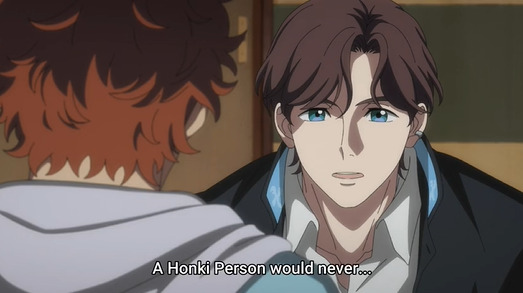
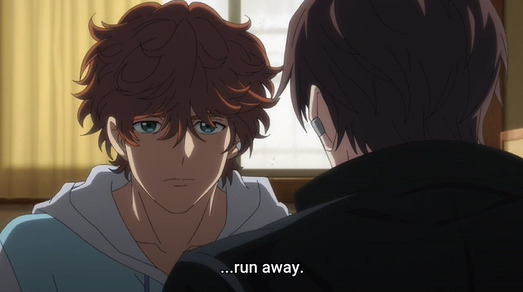
"Perhaps the ring the prince gave her was an engagement ring. This was all well and good but so impressed was she by him that that the princess vowed to become a prince herself one day."
So the cherished prince rides off into the world leaving Utena alone, much like Arajin and even Mitsukuni would leave Matakara alone because of their respective issues. But rather then succumbing to despair, the two heroes resolved to maintain the noble spirit that those heroic figures saw in them. Utena went on to become a prince herself while Matakara would become someone worthy of being a Honki person. Though Matakara struggled more on his journey given how he threw himself into bloody battles while being alone, he would eventually be adopted into the Minato Kai Gang and become closer on his path to becoming a Honki person.
And just before we can go straight to Utena's story in the present, the fairy tale closes with a question to the viewer.
"But was that really such a good idea?"
For first time viewers, it's easy to interpret this question about Utena, a girl, becoming a prince since it defies traditional gender roles and what is expected in classic fairy tales. But as the RGU story progresses, we see that the concern comes not from a girl becoming a prince but more on the problems that come with being one.
Two in particular stand out. The first is that men who become princes usually use those roles for the sake of superiority and having control over women. They lack the nobility a true prince should have and relish in the title because of it's power and privileges. The second problem, and the one that this analysis post will focus on, is how princes who live up to those roles are exploited by the people they try to protect.
Part 2: The Truth That is Twisted by Time
All fairy tales, legends, myths and stories which have been passed from one generation to the next. And as the years go by, those stories are often subject to adaptations based on the preferences of the storyteller or how society uses those tales to explain their respective beliefs. A common criticism is how most fairy tales have more imaginative elements in play and avoid the grittier elements that the tale originally used (Ex. Cinderella got her dresses from a tree instead of a fairy godmother and her stepsisters chopped off parts of their feet to get the slipper to fit, Aladdin used African slaves as part of his prince con).
And we see those changes in adaptations in the fairy tales Utena showcased that omit or warp the truth to the ones who hear of them.
Such as in Utena's origins, we're told that it was only a prince who inspired her to become one so she can reunite with him one day. But the truth was that her decision was because she met Anthy who was suffering from the hatred of humanity. And the only way to rescue her was to turn into a prince whom she could believe in.
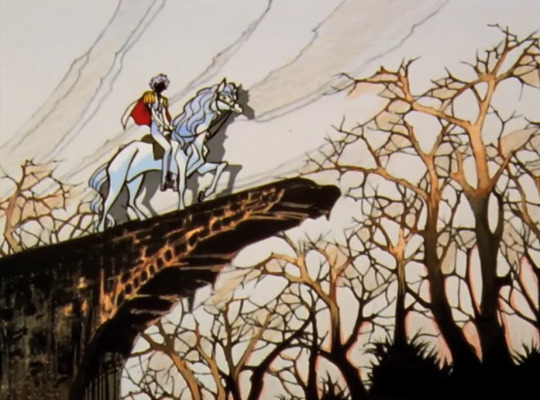



We also see a new adaptation in the backstory of Anthy and Akio which is now known to the world as The Tale of the Rose. The world remembers their story involving a powerful and perfect prince who was stolen from them by his sister who turned into a wicked witch out of jealousy. But the truth was that Anthy sealed him away not out of spite but out of love and concern as her brother was being exploited and over exhausted by a massive, unsatisfied world who overly-depended on him.

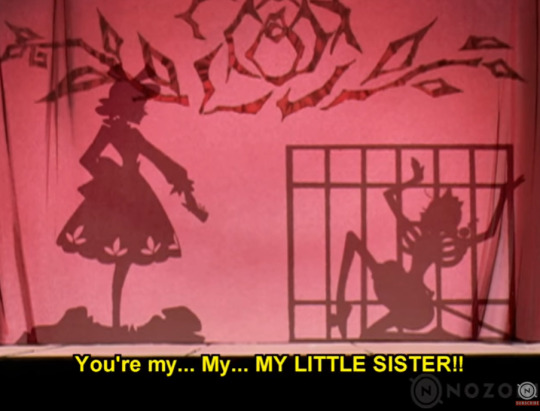


So as Utena demonstrates, the fairy tales we start out learning about aren't exactly as true as their origins demonstrate. They often omit or do away with the more tragic and gray aspects of the characters in those stories. This is all well and good, but what does that say about the Honki People?

Right in Episode 1, we're told that they're courageous and valiant fighters who train nonstop and pour their heart and soul into battle. Despite being brushed off as a simple old story in the present day, their legends and battles prove worthy enough of recognition. They have a temple in their honor, Arajin and Mataraka trained to become like them, and even the city is named after them. The narrative does a decent job in explaining the concept of the Honki People, but what about the people that inspired those legends?
As we see in Episode 9, we learn that Senya and Ichiya actually started out as ordinary humans who dedicated their lives to training and fighting one another, hoping to become a true Honki Person. It's stated that Ichiya was training himself to be a Honki Person so the legend was already around when the two of them were only boys growing up in a Middle Eastern town. And fitting the Aladdin parallels, Senya started out as a simple street rat with no family or home to call his own. And after meeting someone as cool, powerful and inspiring as Ichiya, he decided to spend his life alongside someone he could call his friend.
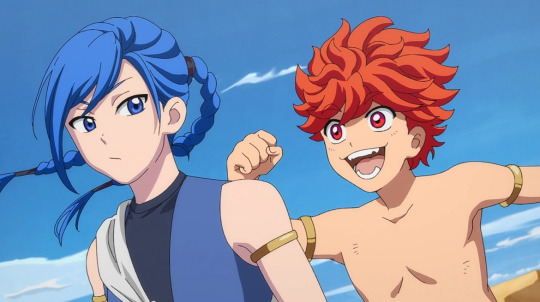
A rather somber element is that while the whole world grew up learning and embracing the Legend of the Honki, none of them actually knew who those Honki People were or what their past lives were like. Would it even matter to them how they started as humble street urchins with no family or home to call their own? They knew what they turned into, but they never stop to think about who these legends started out as or what their backstories or even their names are.
But what's more tragic is what became of Ichiya, the one who inspired Senya. Though we still don't know the exact details for what Senya did that tarnished their friendship, it ultimately impacted his best friend for the worst, corrupting his heart and letting him be filled with hatred and contempt. He no longer valued friendship like he did when he was human and views it as a weakness that must be purged. Perhaps becoming a true Honki Person wasn't all it's cracked up to be given how they're bound to pistols and made to serve whoever finds him for thousands of years.
It's akin to the Rose Prince who's powers were sealed away by Anthy in a desperate act of love leaving him unable to save the world like he used to. Only because of his powerless state did the Prince lose his heart and became a cruel, manipulative and spiteful monster who longed to reclaim what once belonged to him. He would even resort to inflicting every form of abuse imaginable onto his sister as "punishment" for what she did to him. (And yes I do mean every form so please keep that in mind if you haven't seen Utena yet!)
The hero who was glorified and admired in their respective tales loses their nobility in real life, allowing themselves to be corrupted and be filled with new desires of revenge and power. Transforming into the opposite of what they represented in the generations that told their stories. Simply put, they become a villain.
A villain who is...

Part 3: The Virtuous Victim Turned Vile Villain
Bucchigiri and Revolutionary Girl Utena are shows that share the themes of fairy tales while deconstructing and subverting tropes associated with them. One of which that the two share is playing on the idea of a heroic or fairy tale archetype (the genie and the prince) becoming the villain of their respective shows. It's even more ironic that the true heroes of those series would start out being inspired by adaptations of them that portrayed them in a positive light only for to fall prey to their schemes when they meet them in real life. Bucchigiri has Ichiya, a true Honki Person that Matakara heavily looked up to, and Utena has Akio, the Fallen Prince Dios who led the sad princess on the path to becoming a noble prince.

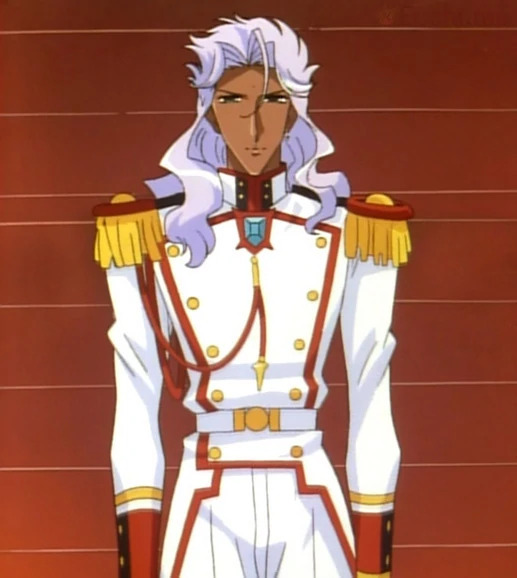
Each of them started out as the ideal fairy tale figure that helped the heroes when they were only children who confronted sadness and loneliness at a young age. But now that they're older and are meeting with them, they end up falling victims to the fairy tales they initially admired and tried to become. And neither of them realize that they're being used as it happens.
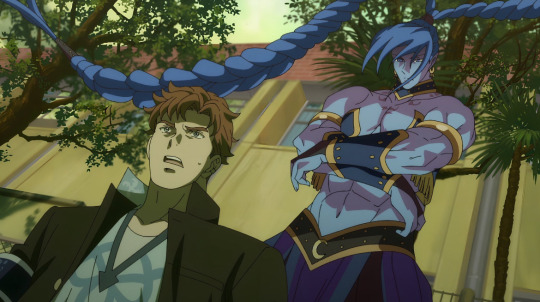
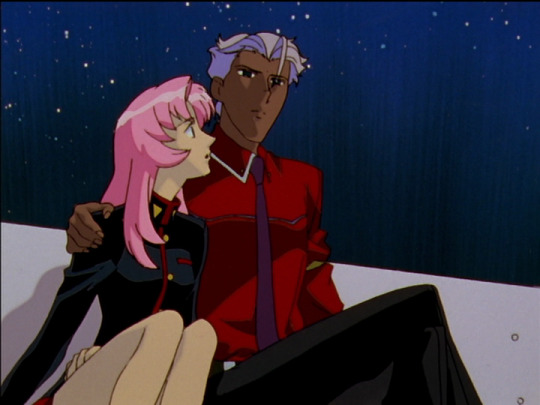
Ichiya's goal is ultimately to merge with Matakara to take over his body and exact his revenge on Senya. As to what Ichiya's motives are after taking his revenge aren't clear, but what is clear is that Matakara will lose himself after being completely possessed. And because Matakara is suffering through his feelings of loneliness and his childhood friend's true nature, he doesn't even notice how Ichiya is manipulating him to improve the merge rate.
Akio's goal has been to groom Utena into producing a noble heart that can help him reclaim his original powers, even leading her in an intimate relationship to further manipulate her. Should he succeed, then he'll discard Utena and move with his life as Prince Dios once again. If not, then he'll discard her and find another person to groom. And Utena doesn't realize this as she's led to believe that he's the prince who once saved her from despair and she'll get the happily ever after she believed will make her content.
The scary part about this, is that they're not the first victims to fall prey to their wicked schemes.
Though it hasn't been confirmed on Ichiya's side, it's heavily implied that he's bonded with other people who found his magic pistol before taking full possession of them. Given how he's lived for thousands of years and initially resided in a public Honki temple, there's no way he would have not been found by some unlucky sap. His common knowledge of possession would suggest he's done this before and has seen the unfortunate results of the person he takes control of, which he mentions to Akutaro.
As for Akio, he also has lived for thousands of years and organized constant Rose Duels in the vain hope of choosing one lucky winner to steal their heart so he can break. Using his sister as a prize to be one, there have been countless tournaments held with the hopes of finding the right target that can help him regain his powers from the Rose Gate.
Alas, neither villain was successful with their attempts given that they've turned their sights on the new generation of heroes to continue their cursed wishes that have lasted for centuries.
And speaking of wishes, remember how I brought up in Part 2 how fairy tales were much darker compared to the more enchanting stories we grew up with?
Well thanks to a peculiar finding by @mahoromouse, I came to realize something about Ichiya and possibly Honki people in general. They're not even genies, they're djinn.
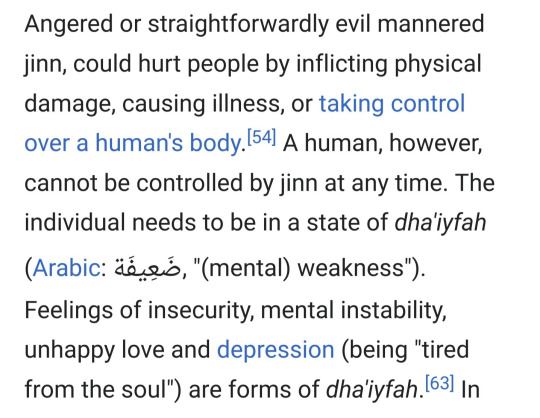
Contrary to the Western media's adaptation of genies as whimsical, playful, wish granting spirits who are voiced by beloved comedians, djinn were actually neutral spirits who were born from fire and were able to wander the Earth like humans do. That said, there are some djinn who grow stronger when interacting with negative emotions found in a human being. It's even said that they can inspire greater levels of negative emotions in a human that they target. Much like how Ichiya is cultivating Mataraka's anger towards Arajin and his fears of the shadows that haunt him.
And how fitting it is that from the moment Senya was introduced to us, Arajin and the audience interpreted him as a genie. Especially given that Senya even offers him a wish while proclaiming that "Honki" can also be spelled to make "Majin" 魔ま人 which in Japanese means "demon person" or "magical person". But have we actually seen Senya grant Arajin's wish of losing his virginity? While he does help the boy in getting stronger and boosting his image as a man, that doesn't mean it's gotten him very close to losing his virginity (thank goodness). And it can be inferred that Ichiya never granted Akutaro's wish despite having stayed by his side during his reign as the NG Emperor.
Given how the Western's portrayal of genies have been popularized and glamorized for years, we have easily forgotten the true origins of genies or djinn and the grittier aspects associated with their backstories.
Conclusions
The theme that the two shows share is how a child who was in a dark moment in their life was inspired by a fairy tale to help them find the light. And so touched were they by the heroes in the stories that they decided to become just like them. But as their respective shows demonstrated, that wasn't a very good idea. The Prince and the Honki Person they once admired turned out to be monsters who resolved to exploit them and reclaim something that was lost to them many years ago. And because they grew up with the romanticized and ideal versions of their idols, they never realized the truth about them which was lost in time mixed with ongoing adaptations that omitted their pasts making them more acceptable to the world.
As for whether Matakara will be saved from Ichiya's corruption while still gaining a heart that does not flee, I cannot say. But as it stands, it looks like Arajin will need to be the one to come in and save the boy he once inspired and who still holds dearly in his heart. And just like I mentioned in my last NNL segment, maybe their friendship won't be the same anymore despite defeating Ichiya. Maybe Matakara will still harbor negative feelings to his friend for how he was mistreated and abandoned for so many years. But much like how Utena ended on a hopeful ending, I believe the same thing can happen in Bucchigiri.
And those are my thoughts on the matter. It's been a great while since I wrote an analysis post this big so thank you if you committed to reading all of this. So what do you think of these themes? If you agree or disagree with anything I've written, please feel free to reblog and/or comment with your own ideas. Thank you and may you have a great day/night!
#bucchigiri#bucchigiri?!#revolutionary girl utena#rgu spoilers#matakara asamine#utena tenjou#arajin tomoshibi#mitsukuni asamine#ichiya#senya#akio ohtori#anthy himemiya#fairy tales#analysis#eddy's post#loving these parallels#anime#long post
66 notes
·
View notes
Text








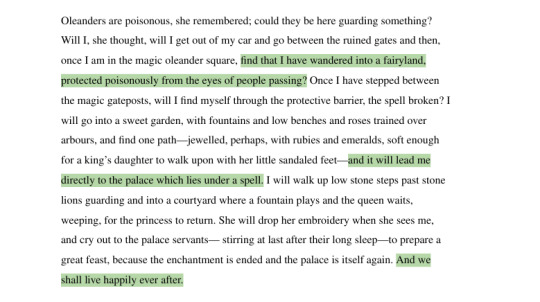






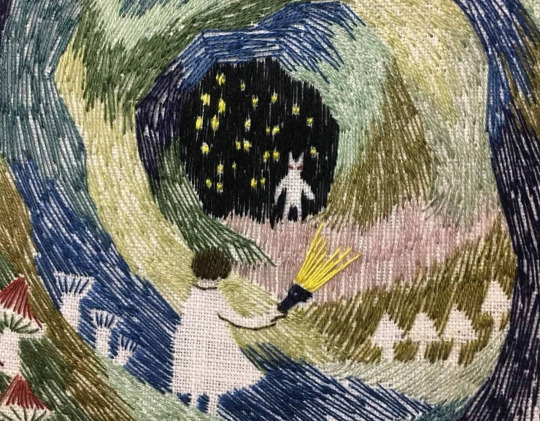

- a story when we were kids || fairytales and dreaming as escapism
[ - agnes callard - oliver jeffers - anne carson - anais nin - pinterest - laura miller - pinterest - shirley jackson - holly warburton - patti smith - pinterest - patti smith - pinterest - shirley jackson - iyo okumi - ]
#thinkingggg......thoughts :)#web weaving#parallels#anne carson#anais nin#shirley jackson#patti smith#holly warburton#literature#art#fairy tales
796 notes
·
View notes
Text
Non-English "Cinderella" adaptations that might have influenced Disney's 2015 live action remake
Rossini's La Cenerentola (Italian opera, 1817). In the opera, the king has died, and the prince's search for a bride is motivated by his pending coronation. (The 2010 German Märchenperlen version also makes this choice.) In the 2015 film, the king is mortally ill, and later dies after the ball. Thus the opera's Cinderella and her 2015 counterpart both ascend straight to the throne in the end. Also, the opera's "fairy godfather" Alidoro disguises himself as a beggar and rewards Cinderella for treating him kindly, just as the 2015 Fairy Godmother does. (Although the Fairy Godmother also does this in Prokofiev's famous ballet.) The opera's Prince Ramiro also has a constant male companion, his valet Dandini, much like 2015's Kit has the Captain of the Guard (although many versions of Cinderella's prince have similar companions). Last but not least, both princes disguise themselves as a servant at some point: Ramiro switches clothes with Dandini for the ball to observe the true characters of the ladies, while Kit disguises himself as a guard to secretly observe the slipper-fitting.
Three Nuts (or Three Wishes) for Cinderella (Czech/German, 1973). In both this version and the 2015 film, Cinderella steals a few moments of freedom by riding her horse into the forest, and there she meets the prince on a hunt and stops him from shooting a deer. (Although in the 1973 film she throws a snowball at him, he chases her, and they taunt each other, while in the 2015 version they share a philosophical discussion about kindness and tell each other a little about their lives.) Both of these versions also hark back to the Grimms' tale early on, with Cinderella's father figure (the manservant Vincek in 1973, her actual father in 2015) going on a journey, and Cinderella asking for the first branch that hits his nose (1973) or brushes his shoulder (2015) as a gift. (In 1973 the branch contains the three magic hazelnuts that take the place of the Fairy Godmother in this version, while in 2015 it doesn't serve the plot, but is poignantly brought to her by the messenger who breaks the news of her father's death.)
Sechs auf einen Strech ("Six at one Blow"): Aschenputtel ("Cinderella") (German, 2011). Cinderella repeats a mantra that she learned from her mother: "You must never lose courage." In the 2015 film, she has a similar mantra, also from her mother: "Have courage and be kind." She also first meets the prince while he's hunting in the woods in this version, and the end sees them about to become king and queen, though in this case the old king is still alive, he just chooses to retire.
Zolushka (Russian, 1947). Cinderella has blonde hair, which she wears in fluffy shoulder-length curls at the ball, while the prince has wavy chestnut brown hair. (These could be coincidences, though.) The Fairy Godmother first appears as a humbly dressed old woman (although not as a beggar in 1947), then reveals her true, magical and glamorous form. The prince is also portrayed with boyish vulnerability as well as with courtly charm, and he even cries in one scene. (The '47 prince in the woods when he thinks he's lost Cinderella forever, 2015's Kit at his father's deathbed.)
When I posted my review of the 2015 film, @ariel-seagull-wings noticed the parallels with the 1947 Russian version. She suggested that Kenneth Branagh might have been influenced by that version, since British viewers are more likely than Americans to see the adaptations from continental Europe. The more I think about it, the more I realize that Branagh and the 2015 screenwriter Chris Weitz might have been influenced by more than one European Cinderella.
#cinderella#fairy tale#adaptations#parallels#2015#cinderella 2015#disney#zolushka#1947#tri orisky pro popelku#three wishes for cinderella#1973#opera#la cenerentola#1817#sechs auf einen streich#2011
68 notes
·
View notes
Text
Stories about Frederick's outfits in CPC
Frederick, the youngest Plaid Prince with the green color motif. The one that had outfits mostly in green color as well, with the exception is his academy era where he wear blue uniform with white tie. This post gonna entertwined some CPC story points regarding Frederick's outfits. For the starter of the everything, let's talk about his trademark Green Plaid Jacket (I have a theory about how the color of his jacket becomes murkier the more he knows about the engagement)

First we have standard male undergament outfit in the CPC universe, a pair of grey trousers and a pair of black boots in monochromatic style. His color is green, and motif of Plaid as part of Plaid Kingdom. His jacket like his brothers as have a pair of golden shoulder pads and a golden trim going down the collarbone part, with a three straps of golden cover with huge black buttons. The inner white shirts of the Plaid Princes modeled to each ones' character (Lance's carefree, Blaine's fancy)- which for Frederick he buttons up to his neck, making him distinct from his brothers, who leave their collars open. There's only some occasions where his collar opened, and all of those events is related to Gwendolyn in someway (discussed in later part of this post). The inner white shirt of him is a simple one with 3 white buttons, that the top is open

^ Second, we'll go from this comment from the webtoon - exactly from episode 146 when talking about how Frederick and Whitney now are like blank canvas and not related to their respected kingdoms. Here the most interesting part imho but also the longest, I do rereading and - voila?
I do rereading and realizes that all of intimate moments of gwenderick had him not wearing Plaid jacket 'properly'.. The comment from Sage person is very pretty close, most are having his jacket displace in some way - some where he opening it like to taking out his lucky charm the newt eyeball - while some didn't have him to wearing the trademark plaid jacket at all like wearing Jamie's change outfit, gala outfit etc

Here the list of episodes where Frederick not really looking like a Plaid Prince, or wondering if Plaid way truly for him!
2nd middle part and the center of the post
after math of amusement park (wears Jamie outfit) ep29
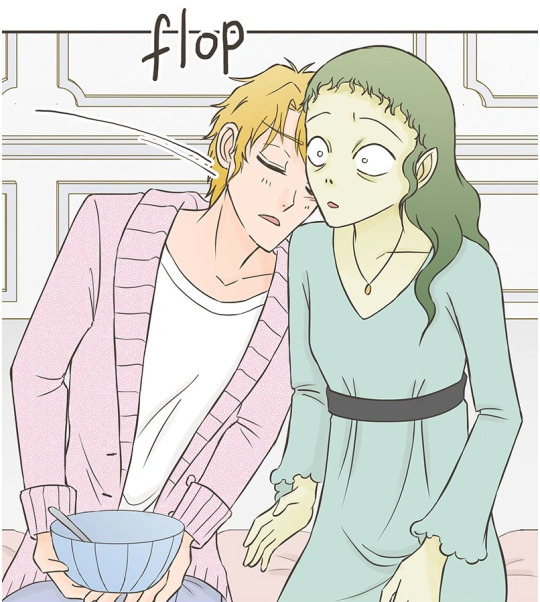
ep33-34 not only time when Fred realizes how kind Gwen is BUT also his beliefs like "innocence, kindness won't matter in this world-cuz I bullied due that". Where Frederick backstory been told, and @alexandersimpleton mentioned before that's interesting for little Frederick wears pastel
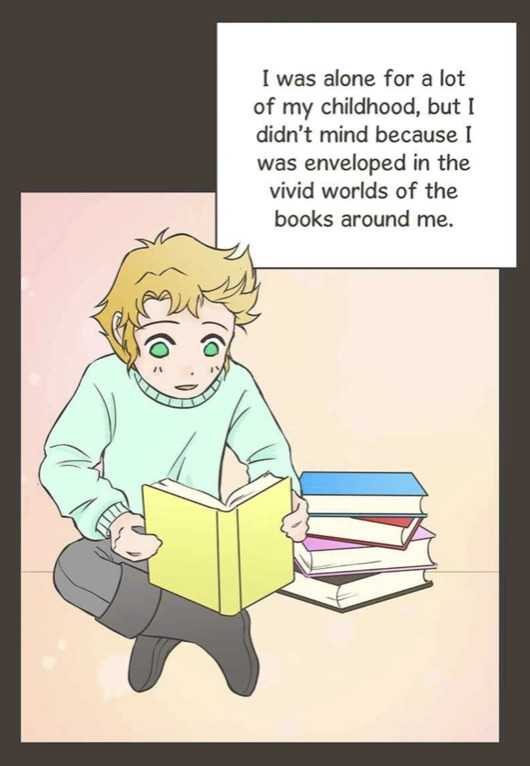
balcony serenade (ripping his own sleeve to treats Gwen) ep39
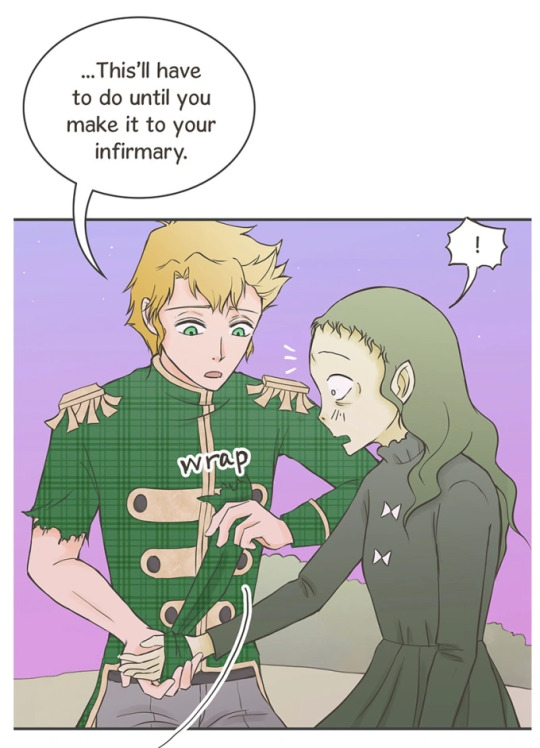
wear green suit that not Plaid at Lance's BD party -ep49
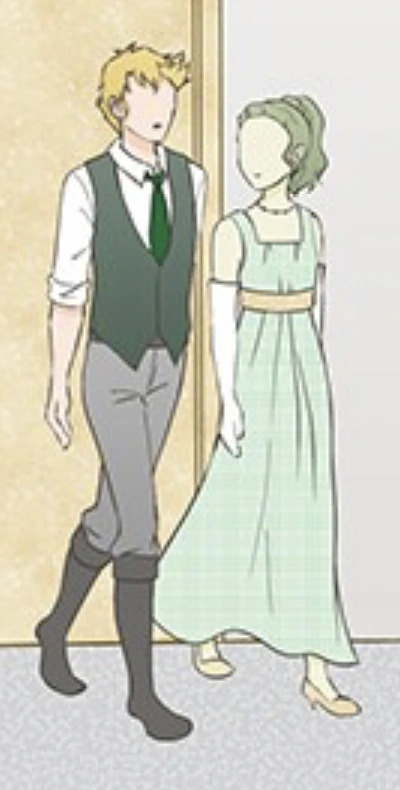
Although just in dream, bonus short ep 4 & (s3) short 4 + his pajama although in plaid motif but open around heart

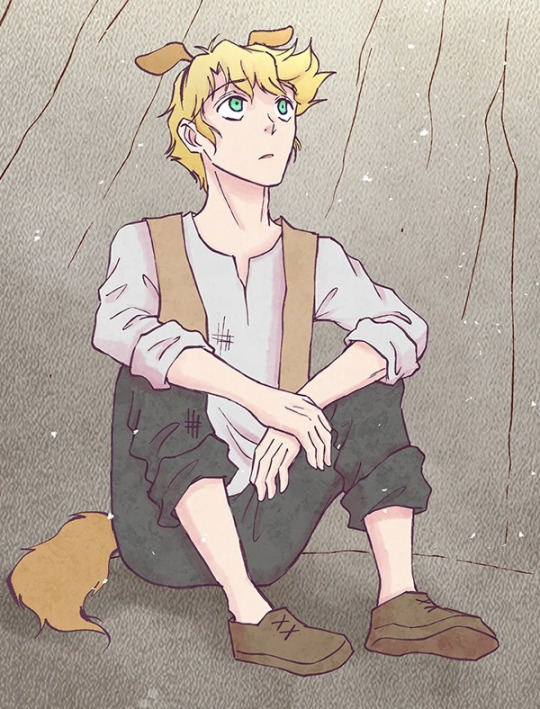
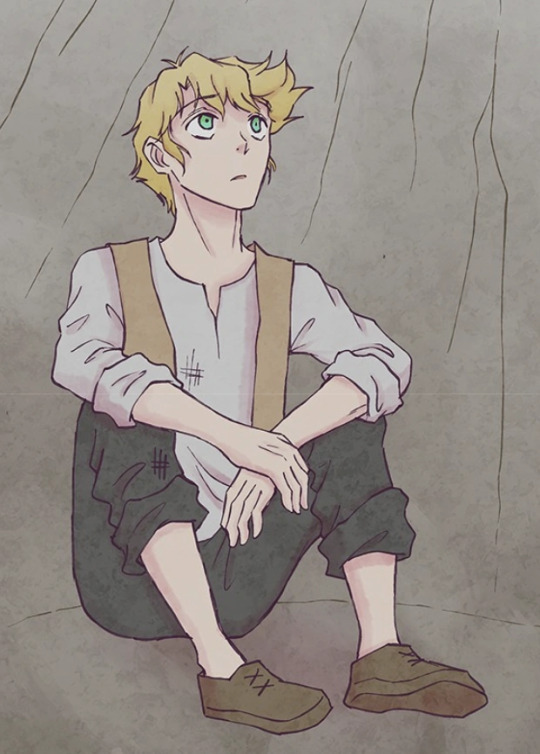
Frederick realizes what he wants (he likes Gwen) , put his jacket like a robe or as the outer (ep70) - double as him meets his inner child. Another example of him opened up. Frederick's inner child outfits also coincidetally not him as a Plaid prince but with the uniform (the start of his innocence tainted) and little prince (which he thinks the most fits to him, his gala outfit that becomes blatant foreshadowing) - and I somehow have a feeling, that we're see Frederick's inner child again somehow it's happening
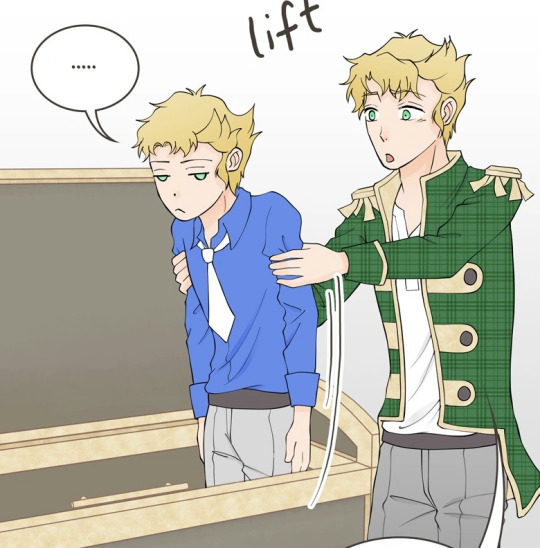
ep74 the portrait duel, his upper top not properly put as the usual - he duels with Leopold that showing his conviction


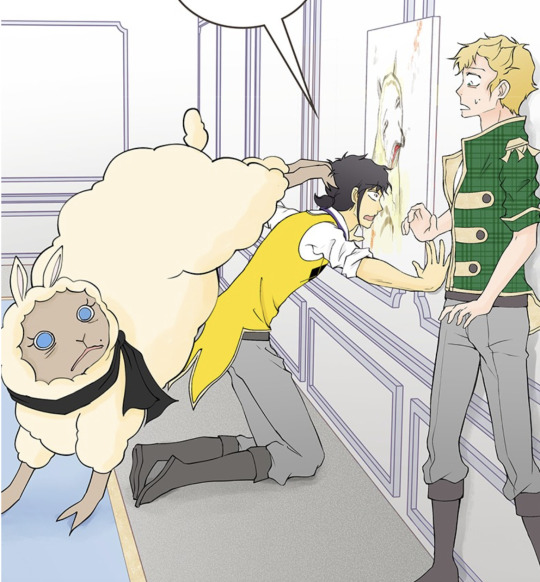
ep82 very important ep as we had monologue that Frederick realizes Plaid way isn't fits to him - he still wearing his Plaid jacket compltely but had flashbacks where he shown to not wear properly, or in the real time having the jacket in messy state + funny pose lol
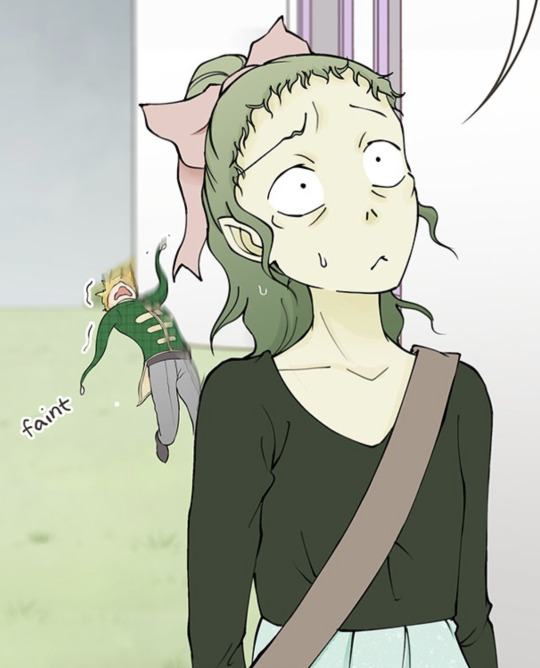

ep89 he offers his waterproof jacket to Gwen, makes him with white shirt - also hints of his self-sacrifice tedency "I'll go instead"
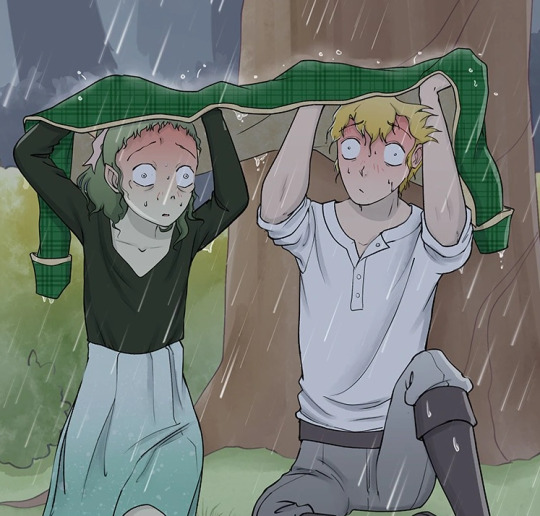
slightly opened up when he had talk with Syrah (ep90)
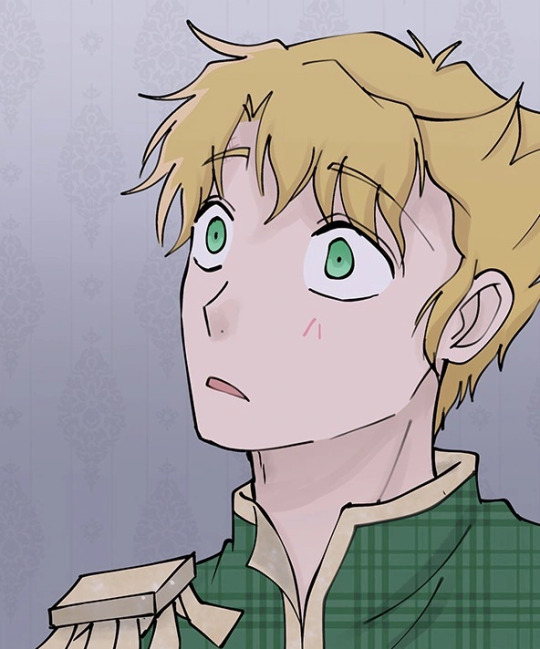
ep92 the confession Downpour (part 2), Frederick opening up his jacket to takes out the gala ticket for Gwendolyn

ep100 Frederick opening up his upper jacket to take out the newt eyeball that becomes his lucky charm

ep106 Frederick confessing to Gwendolyn that he thinks she's beautiful with the upper part of his jacket opened
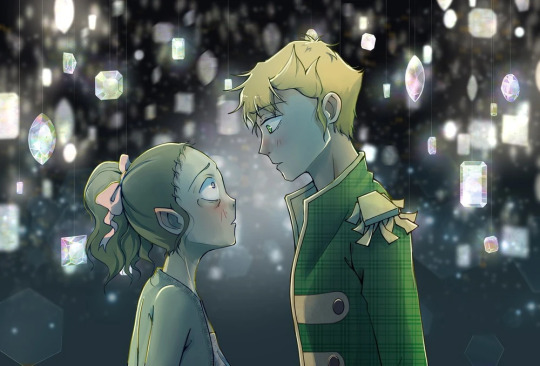
Frederick might not know but Gwen imagines herself with him without his trademark plaid jacket like this; ep112
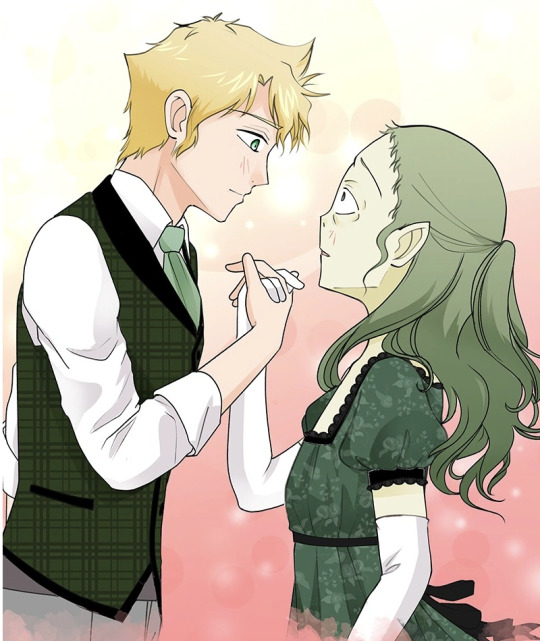
the gala arc since ep 120 with him as the tiniest prince, and with that along with his brothers - become foreshadowing

since season 4 part 2, we have Fred without his jacket completely which symbolizes him as the 'blank canvas'

The last part, gonna be entertwined with another theory 0.0
Frederick = the tiniest prince = little prince
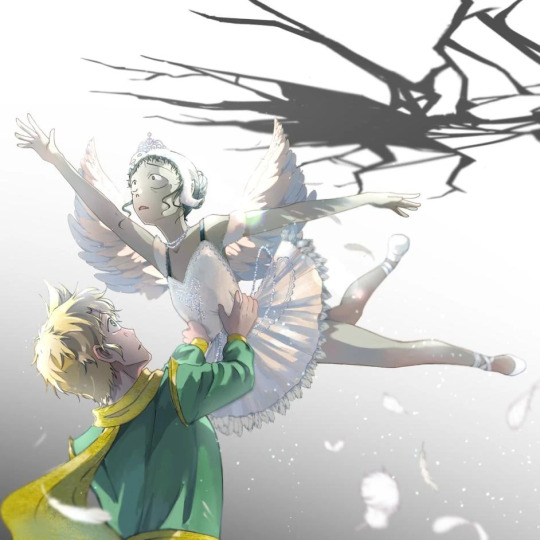
Let's see that webtoon comment image back, one conclusion that I find very interesting that will related to Little Prince :
"In order to create closer and healhtly relationship with Princess Gwendolyn - Frederick needs to distance himself to being a Plaid Prince, and as long as he still keep the idealism (along with toxicities) of the Plaid kingdom he can't reaches Gwen. Gwen needs to see for who he actually is, and Frederick should become who he actually is - the true him"
This, goes hard with the epilogue part of the Little Prince.. Because the story ends with Little Prince looks like he's dying as he get bitten by the snake (and in the CPC, this refers to the Giant Serpent - that keep recurring in Frederick's dreams) so he could returns to his home where his lover the rose there
this means, in order for Frederick could 'return to his lover' = 'reaches Gwen' - he needs to be bitten by the Giant Serpent
The bite (be it literal or metaphorical), will make the little prince looks like he is dying - with several interpretations of little prince even thinks that scene as the prince attempting suicide. The CPC never show explicit suicide attempts BUT implicit scenes happened, with the recent example from Frederick himself that dares 'hissing' Blaine to kill him (ep158). I feel the incoming foreshadowings of some ugly dark scenes in the future that will happen, as Frederick doing something similar to what he dares to Blaine but now to the real Giant Serpent - but it seems won't ends well.
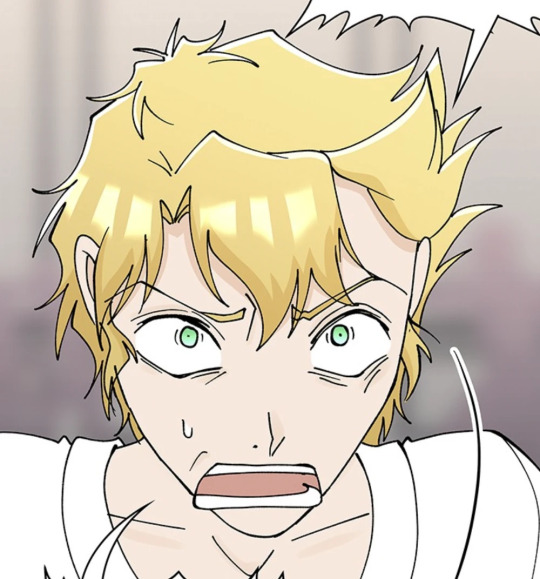
[ Here my further analysis about TGS, which likely Leland ]
So.. Frederick will and need to 'die' like the little prince then?
Me and @meritre24601 hoping for different take as seen the death not be literally as passed on from the real world but metaphorically. That's already happened canonically during the CPC intruder arc as the one that die isn't Renée but the bad parts of the CPC - with Nell's explanation...
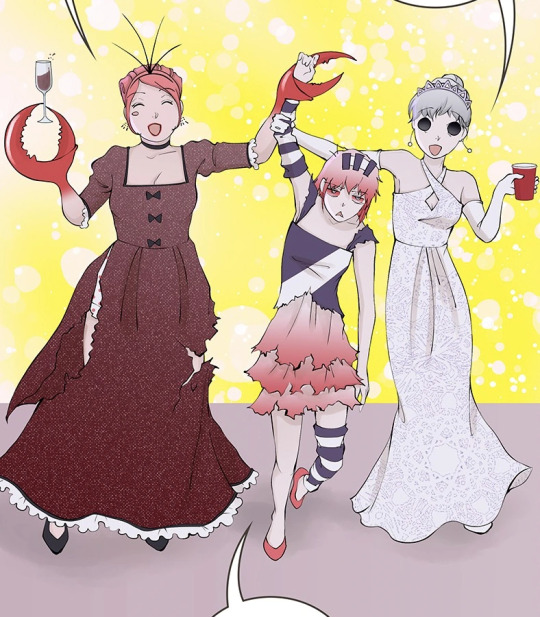
This mean the metaphorically death. Frederick as the Plaid Prince is the one that die as bitten by TGS - but right after that he rebirth as simply "Frederick". Rebirth and transformation are good symbolism of snake/serpent that @saemi-the-dreamer wrote. As he indeed 'die' but got rebirth for new transformation of his life, where he's showing the true him that shown cleverly by LambCat in throughout series from his outfit, he could finally reaches Gwen - the happy ending of their reunion that we are hopes ;-;
#cursed princess club#fairy tales#stories#books#mythology#color theory#parallel theories#cpc theories#outfit#new outfit for plaid kingdom#cpc frederick
42 notes
·
View notes
Text
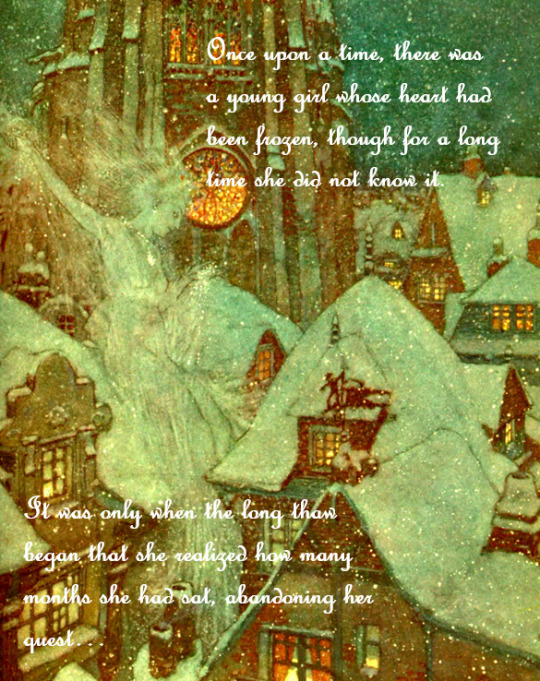
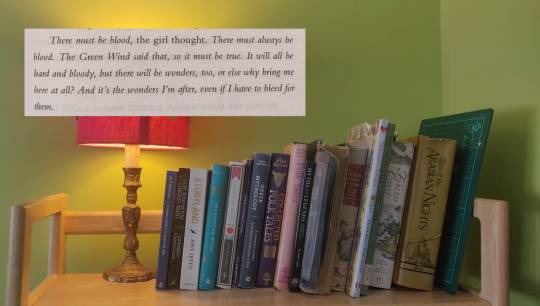





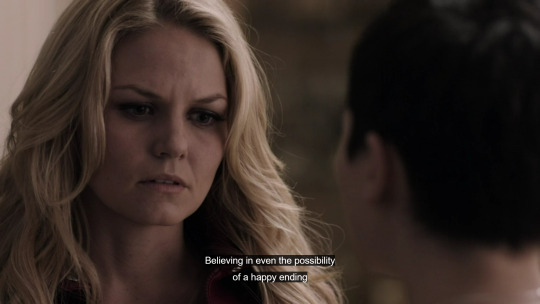
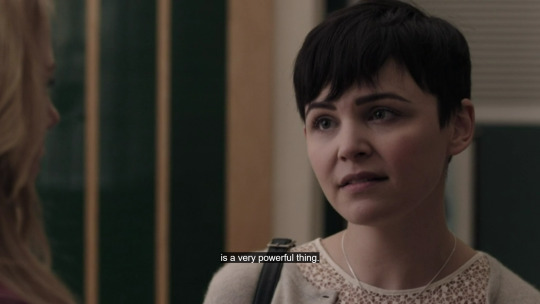





Stories from Hans Andersen - Edmund Dulac (writing mine) // The Girl Who Circumnavigated Fairyland In A Ship Of Her Own Making (photo mine) // Roll Away Your Stone - Mumford and Sons // Fables: The Wolf Among Us 45 - Dave Justus, Matthew Sturges, Travis Moore // Mirrors (for Billie Jean King) - Nikki Giovanni // Pilot - Once Upon a Time // Millhouse - Maisie Peters // The Faraway Nearby - Rebecca Solnit // Meditations in an Emergency - Cameron Awkward-Rich // Scheherazade - Édouard Frédéric Wilhelm Richter // Firewood - Regina Spektor // Fundevogel - Grimms' Fairy Tales translated by Lucas, Crane, and Edwardes.
#web weaving#parallels#fairy tales#this took me like three hours I haven't put this much energy into something like this ever#I am now#so hungry#gonna eat food but yeah! yeah! perhaps this is the month when my roots (fairy tales) as mags said snap my bones back into place!#I'd like to thank my ability to open an unecessary number of tabs and still somehow keep track of them all#what does it all mean? baby I Do Not Know there is no coherency here
78 notes
·
View notes
Text
Rafal is the King of the Golden Mountain
"The King of the Golden Mountain" is such a Never fairy tale, and a canonical one at that (not in SGE, I mean classic, fairy-tale canon). Since the protagonist becomes royalty, he's probably an Ever, even if he uses violent means to reach his end. So, maybe Good is only Good relatively speaking in this tale. At first, the king does try for the peaceful solution, and some Good fairy tales do end in gruesome punishment for the villains. However, a mass of people standing in the way of you getting your throne back aren't all exactly villains, which is why I'm insinuating that the seemingly Ever king is probably a Never king at heart.
The protagonist reminds me of Rafal immensely, in terms of his reactions and everything. The tale is brutal, and it's basically a revenge-fantasy story, which seems odd considering how most of the Brothers Grimm stories, or the better-known ones, at least, have fairly "happy" endings. This one just reeks of bloodlust and victory and smug satisfaction. Like, seriously, it's insane. And, you'd think that by the title, it'd be more Midas-like, but no, I'd say it's Rafal-like. Really.
The poor, suffering king is just deservedly unhinged at this point, like how Rafal should have gotten his proper, very plausible villain arc. I'm still bitter over the Fall identity-swap plot twist! Rafal deserved real vengeance! Especially after he slaved away for Rhian, to fix mess after mess, problem after problem. By the Storian, can't he just get a break! I suppose that, at best, he could be in Purgatory. He was never truly Good enough for Heaven because I don't think a sudden turn realistically can make up for a lifetime of Evil deeds.
Also, this is a tale where practically everyone's beheaded, so just a little advance notice.
Anyway, here's an excerpt from the ending section:
When he was near his palace, he heard sounds of joy, and fiddles, and flutes, and the people told him that his wife was celebrating her wedding with another. Then he fell into a rage, and said, "False woman, she betrayed and deserted me whilst I was asleep!" So he put on his cloak, and unseen by all went into the palace. When he entered the dining-hall a great table was spread with delicious food, and the guests were eating and drinking, and laughing, and jesting. She sat on a royal seat in the midst of them in splendid apparel, with a crown on her head. He placed himself behind her, and no one saw him. When she put a piece of meat on a plate for herself, he took it away and ate it, and when she poured out a glass of wine for herself, he took it away and drank it. She was always helping herself to something, and yet she never got anything, for plate and glass disappeared immediately. Then dismayed and ashamed, she arose and went to her chamber and wept, but he followed her there. She said, "Has the devil power over me, or did my deliverer never come?" Then he struck her in the face, and said, "Did thy deliverer never come? It is he who has thee in his power, thou traitor. Have I deserved this from thee?" Then he made himself visible, went into the hall, and cried, "The wedding is at an end, the true King has returned." The kings, princes, and councillors who were assembled there, ridiculed and mocked him, but he did not trouble to answer them, and said, "Will you go away, or not?" On this they tried to seize him and pressed upon him, but he drew his sword and said, "All heads off but mine," and all the heads rolled on the ground, and he alone was master, and once more King of the Golden Mountain.
The ending is just so vicariously satisfying! I'm hoping someone will see what I mean because it can't just be me who sees the likeness. This protagonist has his petty, chaotic fun, and is mischievous, like Fala's presence at the Circus. And, he suffered at the hands of various men, for his princess, later his wife, a supposed True Love (the cheater!), just like Rafal sacrificed and went through so much physical pain for Rhian, his True Love and the equivalent of the wife in this story. And, Rafal was almost imprisoned with a life-sentence, and was overthrown by Vulcan just like this king was replaced by another, a false hero. After all that he did for Rhian! The injustice! Besides, it feels like a very Rafal thing to cleverly fleece people out of their belongings, even if it seems somewhat accidental in nature in this particular tale. (This happened earlier in the tale, before this scene. And, the wife didn't completely deserve death, I'll admit. The king himself also erred at times, so they're both at fault.)
Side note from while I was writing this: this has got to be the best, most fitting typo I have ever made: "overthrone" instead of "overthrown," and yet, it still applies to tyranny and thrones! Haha!
If you want to read the entire tale, here's one source from which the excerpt came:
And the Wikipedia page for further analysis/a shorthand summary:
If anyone is interested in reading about another fairy tale parallel to the prequels, here's a link to an old "Faithful John" post of mine.
#school for good and evil#rise of the school for good and evil#fall of the school for good and evil#rafal#rafal mistral#rhian#rhian mistral#sge#sfgae#the school for good and evil#tsfgae#rotsge#rotsfgae#fotsge#fotsfgae#my post#my analysis#narrative parallels#classic fairy tales#the king of the golden mountain
29 notes
·
View notes
Note
Sally is just like Cinderella she has to overcome her abusive situation being trapped by the Dr overcome him telling her she is not good enough for anything or anyone. She is able to get the courage to leave and make a better life for herself. She then finds out that her King Charming feels the same love for her she Feels for him. ❤️🩹
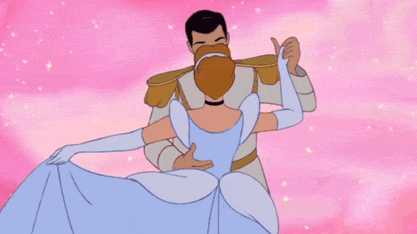

#jack and sally#jack x sally#cinderella#parallels#ask#emmastraub3#combined with my hc where sally reads fairy tales and daydreams about them...#<3
20 notes
·
View notes
Text
The most fucked up evil thing Genshin Impact storytelling has done was establish that Teyvat is a world where memories of the past can be erased, yet the truth can be preserved in the format of a story, so now whenever players are presented with a fictional story that has even minimal parallels to lore everybody goes fucking crazy bonkers
#genshin impact#genshin lorehead when fairy tale: 'LOOORE?? LOOOOOORE? KHAENRI'AH PARALLELS??? CELESTIA?? SOVEREIGNS????'
28 notes
·
View notes
Text
Something I’ve always thought was the most interesting takeaway from watching The Girl in the Tower was that it REALLY got me thinking about all the actual parallels that can be drawn between Salem and RUBY.
Because as far as RWBY villains go, Cinder acts as the diametric, ideological opposite and foil to Ruby: The girl who strives to see the best in people and the world and is practically the embodiment of optimism and positivity pitted against a girl who is the product of all the WORST parts of humanity, has known nothing BUT negativity and pain her entire life and embodies negativity and cynicism as much as Ruby embodies positivity.
But the more information we get, I’m thinking that Salem on the other hand might well be Ruby’s evil counterpart. Whereas Ruby and Cinder are practically opposites, Ruby and Salem are looking to be all too similar.
For one, just look at how The Girl in the Tower emphasizes Salem’s love of books and stories, just as Ruby does. It seems that both Ruby and Salem grew up enamored with stories of heroes and adventures and were inspired by those stories to go out and have adventures themselves.
And when we look at just what they have done, I think we see that Ruby and Salem actually have very similar abilities. For one, both have shown to be quite capable at rallying followers to a cause. Salem was able to rally all of humanity to take up arms against the Gods in her time, just as Ruby is working to rally all of humanity in her time against Salem. And just as Ruby has drawn a close nit group of trusted friends to her side, so too does Salem draw in a select group of loyal followers.
Not to mention both Ruby and Salem have shown themselves to be quite adept at not only inspiration, but manipulation as well. One of Salem’s greatest strengths has always been her ability to manipulate and exploit the flaws of her enemies, subtly undermining them and turning them against themselves and each other. A skill that Ruby has likewise displayed several times in recent volumes. From baiting Cordovin into revealing her mech’s weakpoint with a heroic speech, to breaking up the Ace Ops in their fight so she and her team could pick them off one-by-one, to basically playing Ironwood like a fiddle in the gambit to save Penny and evacuate Mantle and Atlas.
Heck, when we see Ruby and Salem finally meet in person, Ruby basically uses a number of Salem’s own tricks against her. Ruby even needles Salem’s insecurities by bringing up the Lamp and how ‘we’ve seen you fail’. When you actually put Salem’s ‘Just accept your ----- and this can all be over’ and Ruby’s ‘We don’t need to kill you to stop you. And we will stop you’ lines side-by-side, they feel VERY similar.
And lest we forget, Ruby actually did manage to get under Salem’s skin with her little speech. Just look at Salem’s reaction to it: No highbrow, self-assured declaration of how her enemies have no hope of beating her. Just a frustrated, petty jab at Ruby’s mother.
When we look at a scene like the one in Midnight where Salem manipulates Cinder with surgical precision, I can’t help but feel like we’re seeing a ‘what if Ruby used her powers for evil?’ situation. Where Ruby has had thousands of years to hone her keen insight into how people think and is using that insight to manipulate those around her with horrifying skill and finesse.
And when we look at the physical abilities that Ruby and Salem have exhibited, I think we can find even more parallels.
Going back to Salem’s time rallying humanity against the Gods, she did so using a power that came from the God of Light; her Immortality. Just as Ruby wields her silver eyes, a power that likewise came from the God of Light.
And speaking of Salem’s immortality, I can’t help but think that Ruby’s semblance might well function in an almost identical fashion. After all, we’ve seen Salem come back from being a literal charred smear on the ground or being basically vaporized. If Ruby’s semblance allows her to deconstruct and reconstruct herself at a molecular level, I get the feeling Ruby might actually be capable of the same regenerative feats that Salem has shown.
Finally, going back to The Girl in the Tower, I can actually see some parallels between Salem and Ruby in how they may have been ‘imprisoned’. Now on the one hand, there are some direct parallels that can be drawn between Ruby’s and Salem’s childhoods; Both lost their mothers at a very long age and were raised by a father who was wracked with grief over that loss. Though on the other hand, from what we’ve seen it doesn’t seem like Tai was in any way ‘overly protective’ of Ruby or Yang, at least not nearly as Salem’s father seems to have been. But then again, Tai hasn’t been all that big a presence in the story we’ve seen.
Consider the following: Just as Salem was physically imprisoned by her father, Ruby spends the first major chunk of the series figuratively and narratively imprisoned by a symbolic father-figure in the form of Ozpin, a man who might not be related by blood to Ruby, but who nonetheless serves as a prominent mentor and guide to Ruby in the early volumes of the show.
Both Salem’s father in the past and Ozpin in the present are old men who are fearful that the young girls under their care will come to harm and thus go to extreme and ultimately harmful lengths to ‘protect’ them. In the case of Salem’s father, he imprisoned his daughter in a tower to hide her away from the possible dangers of the world. In the case of Ozpin, he tried to hide his students, namely Ruby, away from the truth of the world and the dangers represented by that truth, ie; Salem.
This becomes all the more relevant when we consider that Oz seems to have designed Beacon Academy to look just like the castle Salem was imprisoned in. Without ever realizing it, I think it’s fair to say that Oz eventually became all too similar to the very man he once rescued Salem from all those eons ago.
And the parallels continue when we consider the final lines of ‘The Girl in the Tower’; Ozma tells Salem “You freed yourself,” stating that Salem took control of her destiny by reaching out for someone to help her. And just look at what Ruby does in Volume 6. The moment Ruby asked Jinn “What is Ozpin hiding from us?”, she is no longer following Ozpin’s lead and has effectively seized control of the story for herself.
For much of ‘The Girl in the Tower’, Salem’s father tries to control her destiny. And for the first five volumes of RWBY, Oz effectively tries to control the narrative of the story. Essentially, it is Ozpin who is effectively driving and maintaining the simple, straight-forward ‘fantasy high-school’ genre that defines the Beacon Arc. He keeps major secrets that would upend the entire status-quo of the current narrative, all because he believes it is for the heroine’s own good and safety. He is desperate to maintain a flawed and ultimately unsustainable status quo. Because despite Ozpin’s efforts, the reality of the dangers facing our heroines still came calling and destroyed that status quo.
And even after the Fall of Beacon, we can say that Ozpin was still desperate to maintain that control over the ‘narrative’ of the story for what he believes is the heroine’s own good. No matter how much it gets them hurt or even killed. Just as Salem’s father was so desperate to protect her, no matter how much he hurt her and others in the process.
Until both Salem and Ruby effectively take control of their stories, wresting control away from their literal and symbolic father-figures.
So what do all these parallels mean going forward? I think it means that Salem will ultimately be positioned as Ruby’s true rival and ‘evil counterpart’. And we will be shown that Ruby and Salem are ‘not so different’. I think it’s all too easy to imagine Ruby’s efforts to unite humanity against Salem being painted as all too similar to Salem’s efforts to unite humanity against the Gods.
Imagine when we get the inevitable showdown between Ruby and Salem, it is Ruby who does that ‘we are not so different…’ line that truly rattles Salem like nothing else in the show has?
Finally, these parallels massively reframe the narrative dynamic between Ruby, Salem and Ozma/Ozpin/Oscar, and how the latter could NEVER have been the ‘hero’ of this story.
Ozma wound up becoming little different from the man who imprisoned Salem all those years ago. Ruby on the other hand, is all too similar to Salem herself.
#rwby#rwby analysis#rwby ramblings#rwby theory#rwby fairy tales of remnant#rwby the girl in the tower#Salem#Ruby Rose#rwby ozma#rwby ozpin#Ruby-Salem parallels
273 notes
·
View notes
Text
I've noticed an interesting thing about Lafaell's manipulation tactics while I was re-watching S2E10.
Right now his biggest obstacle to realising his grand Fairy King plan is, uronically, Ann. A human, who would agree to help libirate the fairies in a heartbeat, if not for Lafael's methods. If it wasn't for Ann, Challe would probably agree to his propositions, he'd even find them reasonable. After all, he does still hate humans (as mentioned in the light novels), it's just that thanks to Ann he's slowly starting to come to terms with the idea that not all of them are terrible.
So naturally, Lafael's first course of action is to divide Challe and Anne and approach them individually, which is Manipulation Tactics 101.
First he summons Challe, sowing doubt into him.
Notice the phrases he's using:


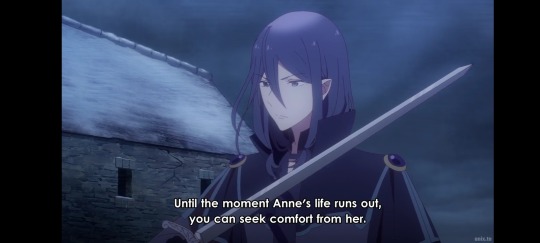
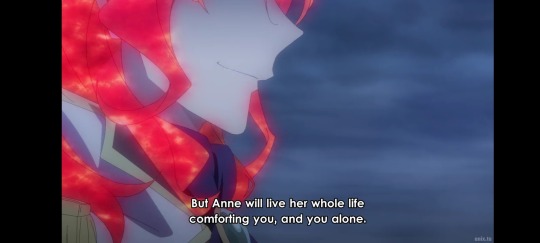
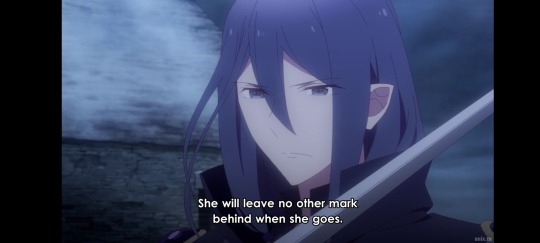
"Humans should be with humans and fairies should be with fairies."
He's weaponising Challe's love towards Ann by digging out the fears he's been harbouring this entire time.
Next he approaches Ann with EXACT SAME points he was making, when he was talking with Challe.
See what he's saying?
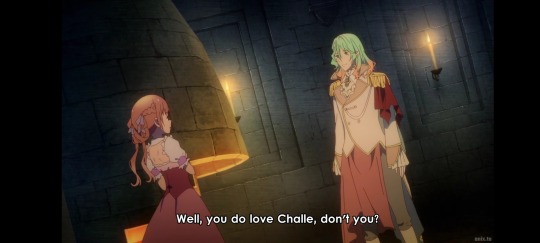
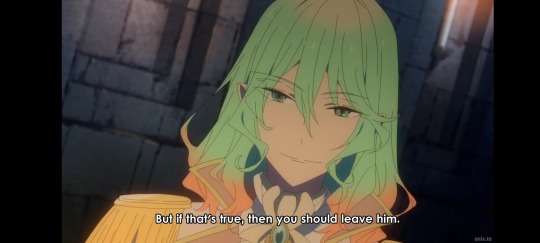
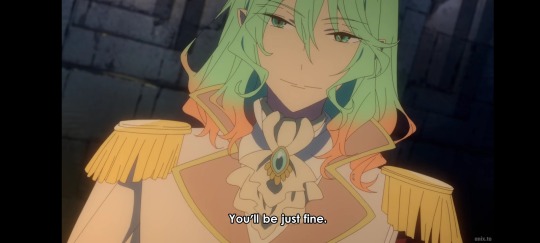
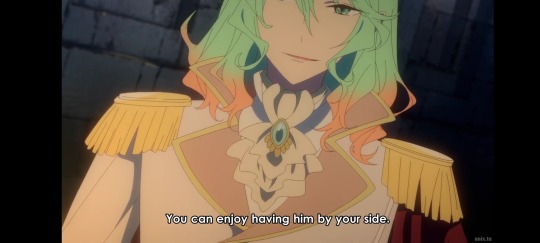

"Just as he was a long time ago."
Once again, weaponising Ann's love and care towardd Challe.
Holy shit this dude is good at manipulation, wow. I find it ironic, that while Lafael denies even the sliver of possibility that love between a human and a fairy is valid and possible he has no other choice but to appeal to Ann's and Challe's love if he wants to successfully manipulate them into obidience. And to his credit, it possibly could've even worked, if only Ann hasn't decided to go and seek out Challe anyways, after hearing all that
#sugar apple fairy tale#ginzatoushi to kuro no yousei#challe fen challe#shall fen shall#anne halford#ann halford#I just thought the parallel was neat#I don't actually know what I'm saying I'm just spewing out things
33 notes
·
View notes
Text
Robb -> Sleeping Beauty
Jeyne -> the Prince
Sybell Westerling -> The evil step-mom
Walder Frey -> The vindicative old fairy
Edmure Tully -> The seventh fairy
Humiliated by his King, Walder 'Old fairy' Frey curses 16 yo Robb 'Sleeping Beauty' Stark, Edmure 'Seventh fairy' Tully tries to fix the situation, Sybelle 'evil step-mom' Westerling tries to kill Robb's family
Cat and Robb's storyline is Sleeping Beauty-coded (the og fairy tale)
#robb stark#jeyne westerling#sybell westerling#walder frey#edmure tully#sleeping beauty#fandom crossover#narrative parallels#asoiaf x sleeping beauty#fairy tales
7 notes
·
View notes
Text
I love the ending theme and how it’s in continuity with the ending of season 1, down to its artstyle!
In the first ending, Anne, Kat, Keith, Hugh, Elliott, and Jonas all come together to create a sugar rose, which Anne later gifts to Shall:
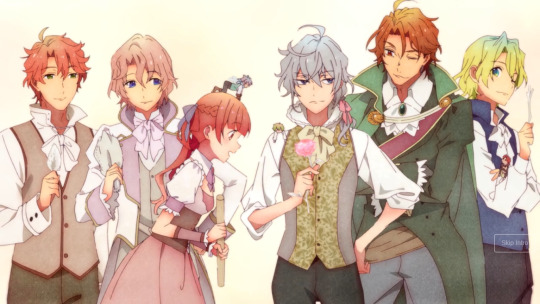

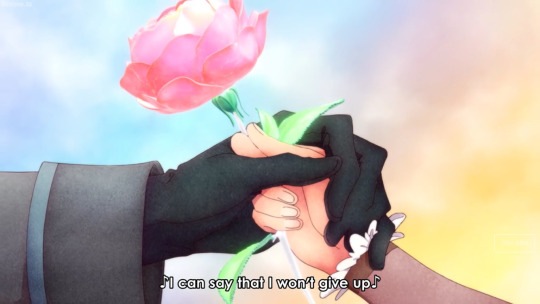
In ending 2, Anne, King, Orland, Nadir, Valentine, and Elliott all make beautiful flower sugar sculptures separately (per the workshop’s philosophy), yet when gathered together, the end result feels... lacking.
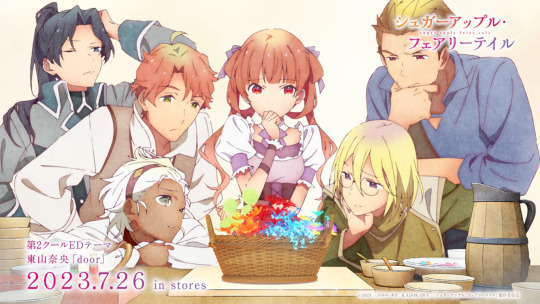
It’s only when all the people Anne has met and befriended come to offer their support that the sculpture becomes truly magnificent.
And the first one to kickstart this is, fitting enough, Shall himself, with the same kind of sugar rose Anne gave to him in ed 1:
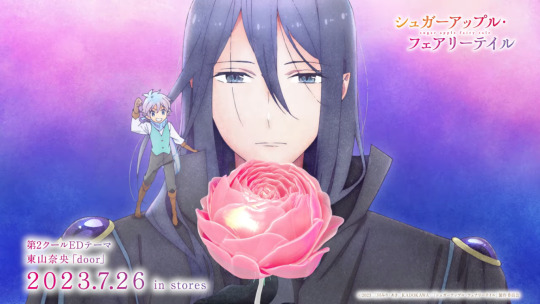
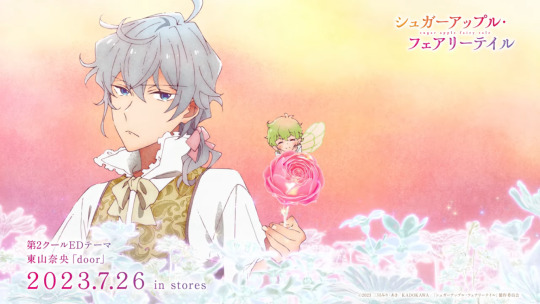
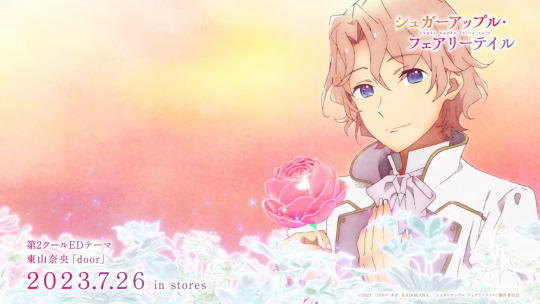
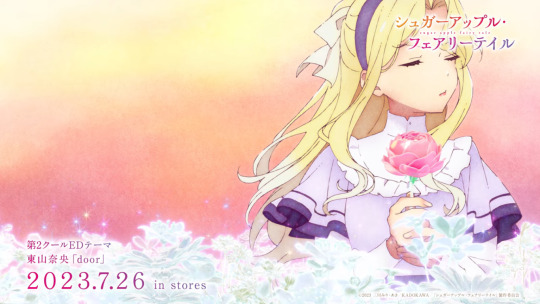

In other words, while what the they can do on their own is significant, together, they can do even better. (Which I think is also the lesson Anne will try to impart on the artisans at the workshop :P)
24 notes
·
View notes